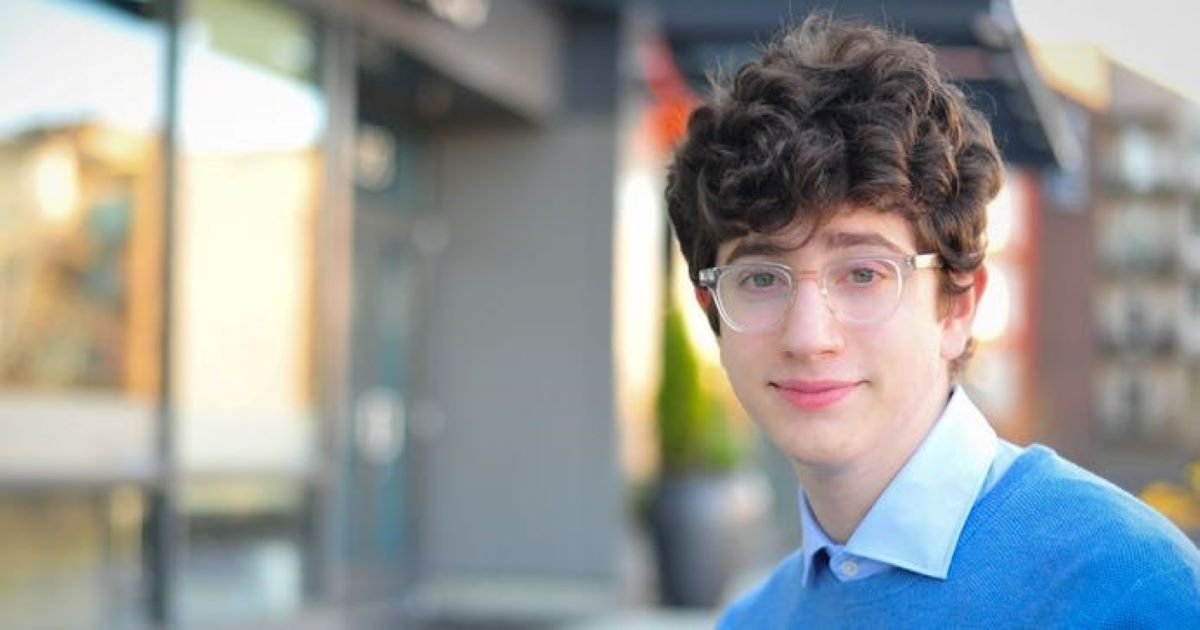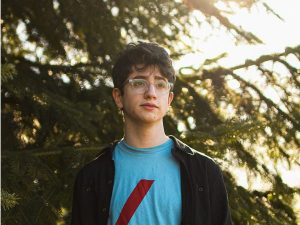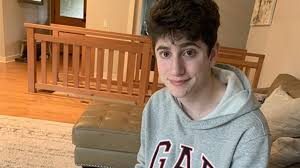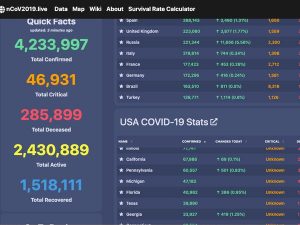17-year-old Avi Schiffmann is not your average high schooler.
Not unless you have made something similar to a saving-the-world technology while you were there. Schiffmann has created the most widely trusted and visited coronavirus tracker in the world, only by investing “100%” of his free spare time. And he vows that he will keep running the site on until the very end of the pandemic. He will constantly be updating resources and new features, and when it is indeed over some day, he has made sure the servers go down, and then make an academic page comparing the current pandemic to those things that have happened before in history, possibly with SARS and the Spanish Flu.
“In the future, I hope pressure is on the WHO” to make a tool like this, he said, “The responsibility shouldn’t be on some random kid, but it’s obvious that people want to know the statistics.”
“It’s taken over my life,” he said, adding that he will “gladly take on the pressure.”
“I was a terrible terrible high school student when this became really popular, I skipped two weeks of schools to focus on the site and make it work. I’m only 17, I don’t need $8 million…I don’t want to be a profiteer,” he said.
He has his very considerate and well thought-out reasons for not going for ads in his site. First, the popups ruin the UI of the tracker site, which would have made it impossible for him to exert full capacity of the app had he sold the tracker for 8 million dollars to a big corporate.
Also, he’s not looking to work on contract with a third party: he would like to operate on his own power and intelligence and decision making. And most importantly, considering the network conditions that the developing country users’ utilize, ads would deter from their quick and timely access.
“I don’t want it to leave a stain on things in the future…people think I’ll regret that decision, but I plan to do many things in the future.
” Schiffmann has big plans for his future. He’s already gotten job offers, including one from Microsoft, but he isn’t interested in accepting one of those jobs now, plus he wants to keep pursuing his own projects and “the last thing you want to do is code more” after a day at work coding.
Instead, he cares more about the connections he’s made from the project. “Now I know a ton of VCs and investors…if I started a company tomorrow, they’d at least read my business plan.”
If you liked this article, please LIKE SHARE AND COMMENT below! And don’t forget to check our other articles along the way!
Replaced!





